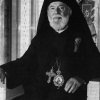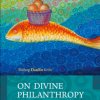The film is about two people growing up in Serbia's northern province of Vojvodina and it is the only film from Serbia and the region at this year's festival.
The Disobedient focuses on a drama that promotes courage to wander and explore outside the framework imposed by the society or any other authority. It is a tale of the right to love, freedom, beauty and life, Djukic explained.
.Srdjan Golubovic's Circles had its world premiere at last year's festival and won a special award from the jury.
Sundance is the biggest festival of independent film in the US. It was established in 1984 by Hollywood actor and director Robert Redford.
This year's festival will include 187 films, with 67 of them competing in four categories. The winners will be announced on January 26.
From: TANJUG
Photo: Tanjug - Dragan Stankovic (archive)






